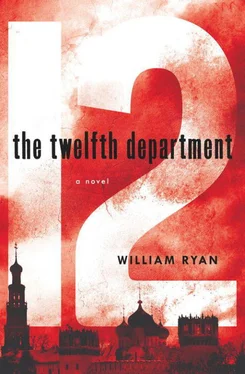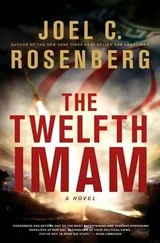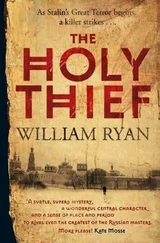“I’ll tell her.”
“Good.” Rodinov considered him for a moment. “Which brings us to the murders, I suppose. Professor Azarov?”
Korolev thought about Goldstein and his bravery at the institute. If he’d killed the professor hadn’t he been administering a higher form of justice? In any normal society, the professor would have been a criminal—at least in Korolev’s opinion. But then hadn’t Goldstein’s action caused this whole chain of events? He needed to think about it.
“We’ll have to carry on our investigations,” he said. “We have a few leads. It wasn’t Shtange, that’s for sure. I can only think some of the professor’s techniques were used on Priudski to make him give that evidence.”
Rodinov considered this for a moment, then shook his head. “It doesn’t matter. Shtange’s dead and his wife leaves for France this afternoon with their children. Shtange will do. That’s the end of it, Korolev.”
Korolev was about to object and then stopped himself. Yes, Dr. Shtange would do. If his wife ever found out, she’d know the truth and she’d know it in Paris or wherever she ended up. Korolev lived in Moscow and if the colonel said, in as many words, that Shtange had killed the professor—then who was he to second-guess the newly appointed head of the Twelfth Department?
“Now what about Shtange’s death?” the colonel continued.
“Madame Azarova,” Korolev said. “Although, I’m not sure she was quite right in the head at the time.”
And perhaps it was the mention of Shtange’s death that finally jolted his exhausted brain to remember who that damned cigarette case belonged to. Perhaps the realization showed on his face, because the colonel slid it across the table to him once again.
“You recognize it now? I saw you looking at it. Did you see it when you went to visit Shtange at the institute?”
“Yes,” Korolev said, remembering Shtange offering him a cigarette from the case and how the propeller had caught his attention.
“The dedication is curious. Open it up.”
Korolev picked up the case and looked inside.
“Read it aloud.”
“With the fondest regards and enormous gratitude for your efforts,” Korolev read. “G.N. Kaminsky.”
“Dubinkin found it in Zaitsev’s office. He thought I might like it as a souvenir. Are you wondering why?”
Korolev was confused—as far as he was aware, Kaminsky was the current People’s Commissar for Health. It had confused him earlier when Rodinov had been talking about this fellow Boldyrev having taken over the job.
“I’ll tell you, Korolev. On Monday evening, not six hours after our Professor Azarov went to meet his maker, Grigory Kaminsky made a speech to the Central Committee. In that speech he denounced the NKVD for making false arrests. By the time he was halfway through it, half his audience had left the room. By the time he’d finished it, our people were waiting for him. That’s how come the position of People’s Commissar of Health became vacant.”
“I see.”
“I don’t know if you do—you see, Shtange’s report was intended for Kaminsky. I don’t know if Kaminsky ever received his copy, but he certainly made veiled references to the institute in his speech. That’s why Zaitsev felt relatively comfortable about it. He knew Kaminsky was discredited and he knew Shtange, because of the sentiments in this cigarette case, could be discredited as well. But the truth will out, Korolev. The truth will out.”
The colonel seemed to consider what that might mean and his expression turned grave, almost melancholy.
“Yes, we must remember that.”
Moscow was beginning to wake as he walked home. It must have rained because the streets were wet and their reflection of the yellow morning sky had turned them golden. He was tired, certainly—his shoes felt like they were made of lead—but he was alive and he was safe, relative to the last few days anyway. And a citizen couldn’t ask for much more these days.
Sometimes a murder was like a pebble thrown into a pond, the ripples from it spreading wide—and that had been the case here. A bullet fired on a Monday had killed the professor in the morning and contributed to the arrest of the People’s Commissar for Health in the afternoon. On Tuesday, it had claimed another life—Shtange’s—and seen Priudski arrested. And last night the bullet had claimed Colonel Zaitsev—and Korolev could only guess the colonel’s fall would lead to many others.
One bullet had wreaked havoc.
Korolev walked slowly, thinking it through, amazed that he and Yuri had somehow been spared.
But then he remembered where he was going and who might be waiting there for him—and he picked up his pace. By the time he turned the corner of Bolshoi Nikolo-Vorobinsky he was almost running. He must have woken half the house as he clattered up the staircase to the apartment.
They were waiting for him, and as he entered the shared room he saw three faces looking up at him. They must have been sleeping on the chesterfield. Valentina stood, rubbing at her eyes, but Yuri was already running toward him, grabbing him around his waist and Natasha, Valentina’s little girl, joined him a moment later. And then all four of them were holding each other, not saying anything, and Korolev found that his eyes were damp—and it wasn’t from sadness.
The original idea for The Twelfth Department came from a BBC documentary series called The Brain: A Secret History. The “Mind Control” episode featured footage of 1930s Soviet experiments demonstrating the conditioned reflexes of children to eating biscuits—a variation on Pavlov’s dog experiments, but this time done with hungry-looking teenagers. It also seemed from the clip that some of the young boys had been operated on—although for what purpose remains unknown.
What is known is that the Soviets were very interested in psychological manipulation from the earliest years of the Revolution—and that both they and the Nazis, despite having repressive regimes, achieved genuine loyalty from their populations through propaganda and the careful exploitation of perceived internal and external threats. It’s also true that Soviet interrogation methods were very sophisticated by the 1930s and some of their techniques, particularly sensory deprivation, are still being used by American and British intelligence-gatherers today. Indeed the term “brainwashing” was coined in response to the inexplicable behavior of American and British prisoners of war captured during the Korean War—who almost overnight appeared to have become devout Communists.
That having been said, the parts of The Twelfth Department that deal with Soviet research into mind control are fictional and none of the events portrayed in this novel are based on actual events.
Three real people are mentioned in The Twelfth Department —Nikolai Ezhov, Isaac Babel, and Grigoriy Kaminsky—and it’s probably worth saying a little bit about each of them.
Nikolai Ezhov became People’s Commissar for Internal Security in September 1936, taking over from his predecessor, Genrikh Yagoda. Yagoda was later arrested and sentenced to death and, on Ezhov’s orders, was severely beaten before his execution. Ezhov kept the bullet that killed Yagoda in his office. While the Great Terror began under Yagoda, it reached its peak under Ezhov’s direction and, in the brief period he held his post, millions were arrested, many of whom were executed. By 1938 Ezhov had eliminated all internal opposition to Stalin—as well as countless innocents—and had become a threat himself in the process. As a result, he was replaced by Lavrenti Beria in late 1938 and, after a few months awaiting a certain fate, was arrested. He was severely beaten before his execution in early 1940.
Читать дальше












